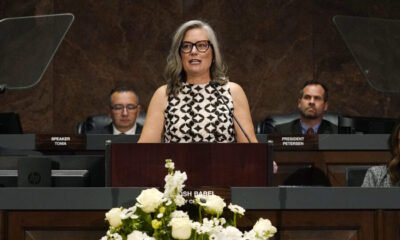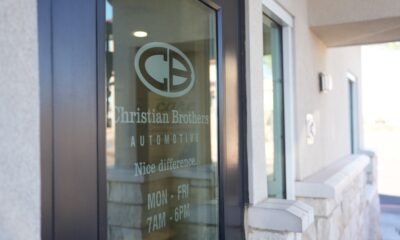back taxes
State Seeks $11M from Online Auto Parts Retailer in Landmark Case

The Arizona Department of Revenue (ADOR) recently imposed an $11 million retroactive sales tax bill on the online auto parts retailer RockAuto. This has prompted the company to petition the state Supreme Court for intervention and raised concerns among local attorneys about broader implications for businesses beyond Arizona.
RockAuto, headquartered in Wisconsin, had previously avoided paying Arizona sales tax from 1999 to 2019, claiming it lacked a physical presence in the state—a stance supported by former state tax regulations. The situation changed following an audit initiated by a Gilbert taxpayer and the city, leading to claims of $8 million in back taxes and penalties for the period between 2013 and 2019, which has now escalated to $11 million.
A lawsuit filed by RockAuto against ADOR in 2020 initially favored the company in 2023. However, the Arizona Court of Appeals overturned this ruling earlier this year, citing that the company’s use of six Arizona-based distributors and other business activities established a sufficient physical presence within the state.
Following the appellate ruling, RockAuto has severed connections with its Arizona distributors and is contemplating ceasing sales in Arizona altogether. CEO Jim Taylor expressed frustration over the impact of these tax penalties on their business viability in the state.
Local attorneys James Busby and Paul Eckstein, representing RockAuto, voiced concerns that ADOR’s actions could set a precedent for retroactive tax claims against out-of-state companies nationwide. “This case is crucial not just for RockAuto; it could have a chilling effect on businesses operating across Arizona,” Busby stated.
Although the state Supreme Court has yet to decide whether to hear the case, various lawmakers and interest groups have expressed their support for RockAuto. State Representative Michael Carbone has indicated a potential legislative response to address what he perceives as misguided tax assessments by ADOR.
Despite the uncertainty, Taylor expressed skepticism regarding legislative changes, noting that RockAuto has adhered to existing tax laws. He criticized ADOR’s disregard for the framework established prior to these tax claims.
Steven Zylstra, president and CEO of the Arizona Technology Council, also reached out to ADOR, emphasizing the potential negative ramifications for online retailers if the current situation is not resolved. He argues that it could deter out-of-state businesses from engaging with Arizona.
While ADOR has declined to comment further during ongoing litigation, RockAuto’s legal representatives indicated that a resolution could still be achievable outside court, especially considering the context of the tax charges stemming from the previous governor’s era.
Eckstein remains hopeful that the Arizona Supreme Court will take up the case soon, asserting that the issue resonates with statewide significance. “We believe we’ve presented a strong case for the court’s consideration,” he remarked, awaiting the Supreme Court’s decision.




![Members of the Arizona House of Representatives vote during a third reading of nearly three dozen bills at the Arizona State Capitol on March 4, 2025. [Monica D. Spencer]](https://arizonanews.org/wp-content/uploads/2025/06/SR-347-Secures-53M-in-Third-State-Budget-Draft-Awaiting-400x240.jpg)
![Members of the Arizona House of Representatives vote during a third reading of nearly three dozen bills at the Arizona State Capitol on March 4, 2025. [Monica D. Spencer]](https://arizonanews.org/wp-content/uploads/2025/06/SR-347-Secures-53M-in-Third-State-Budget-Draft-Awaiting-80x80.jpg)












